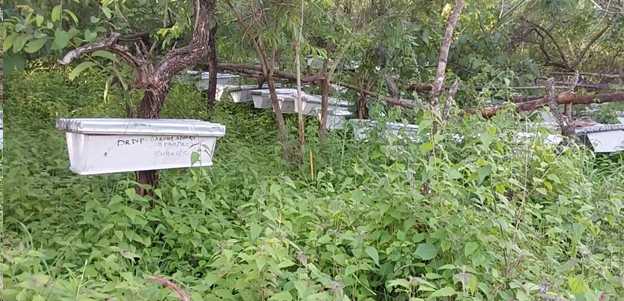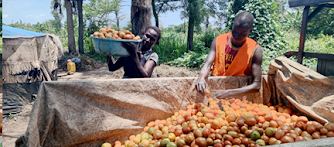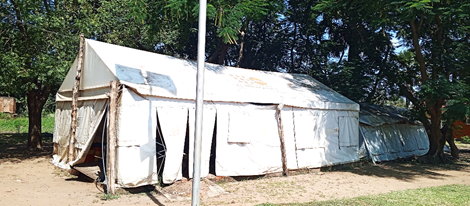DRDIP triggers communities through bee keeping in Yumbe
 |
| Garube Apiary sub project beehives, Yumbe |
With a generous start-up capital of Shs18,500,000;
invaluable financial literacy training coupled with constant support
supervision, these community members are on the brink of a life-changing
journey, fuelled by their identified enterprise: bee keeping.
Located in Kuru Sub County, Garube Apiary sub-project
started in March 2023 with less than 10 beehives, but now boasts of 85 hives
when DRDIP advanced the support.
“Each beehive produces 30 litres of honey per season
or 60 litres in a year”, Ratib Abele, the group leader explains. This means the
group’s prospect is to harvest up to 2,520 litres of honey every season or
5,040 litres annually since honey is harvested twice in a year.
Yumbe district Natural Resource focal point for the project, Kemis Ambaga
says, “support from DRDIP was timely and it has surely landed on the right
target group”.
A litre of distilled honey costs Shs10,000 when sold
locally within the West Nile towns of Yumbe, Koboko or Arua. This means,
Garube Apiary project can potentially bring cash worth Shs25,200,000 per season
or earn Shs50,400,000 annually. Both figures projected to arrive within the
very first year are already enough to bring back the initial capital invested.
Abele said his group members chose bee keeping because
it’s easy to manage and yet brings returns quickly enough to treat poverty. “We
considered bee keeping as the nearest medicine to treat poverty and so far we
are on the right track”. “We intend to expand our project to at least 500
beehives and do honey processing here, then target selling beyond our Ugandan
market”, Abele explained.
With a promising first harvest that came in December
2023, one beneficiary, Rasul Aluma said, “our profits for this first blessing
is going direct for strengthening value addition, we shall later target
empowering our individual investments at household. “Now is for creating bloc
wealth, then we shall spread the wealth when profits start overflowing” he
brags.
Honey is more profitable than the
much talked about petroleum. Whereas a litre of petrol is sold between Shs5,500
to Shs6,000, a liter of distilled honey gives the seller not less than
Shs10,000 in the Ugandan market. Uganda ranks fourth in honey production in
Africa after; Kenya, Tanzania and Ethiopia respectively. Pharmaceuticals around
the world rely heavily on honey as a key raw material for making medicines,
thus the honey business is attractive not just locally but for the
international market.



Comments
Post a Comment